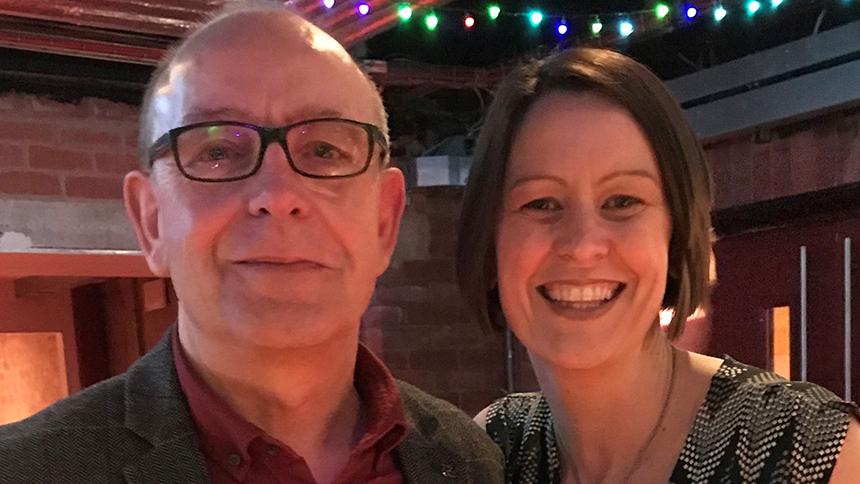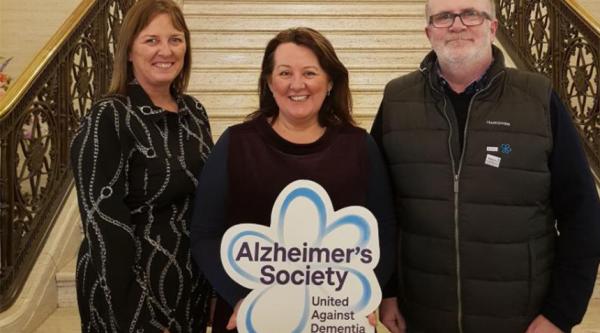Combatting the symptoms of posterior cortical atrophy: ‘I’m still me’
Edward Bushnell in Oxfordshire, who is 62 and has posterior cortical atrophy, says he has ‘no alternative’ but to be positive. He explains how he manages his symptoms.
Posterior cortical atrophy (PCA) affects my life massively. I do try and do things to combat the symptoms.
I use Headspace, a mindfulness app, every day. I get quite a lot of anxiety. Headspace helps me calm down and be more myself.
I get incredibly anxious about various things, though I never used to. If anything, it’s getting worse.
I’m on a drug called citalopram, an antidepressant. I take one a day, it helps me be calm – calmer anyway.
I also use Lumosity, a ‘brain training’ app, every day to keep the cogs whirring as long as I’m able to.
I don’t have vision problems, which are common with PCA. I’m scheduled to see an optometrist in future, but at the moment everything is OK with my vision, fingers crossed.
Spotting the first symptoms
It was my wife Samantha who first noticed I was struggling with things. The thing that manifested itself initially was my co-ordination – not being able to put things together properly.
I lost my job. I was head of internal audit for a financial services firm in London. I loved it. That’s all gone now.

Edward and Samantha.
There isn’t an alternative to being positive in my world. I choose to remain with a positive outlook – I’ll fight that for as long as I’m able to do so.
The support from my wife is nothing short of fantastic, I love her to pieces. I’d be up a gum tree without her!
Supporting myself and others
During the pandemic, one thing I’ve been doing every day is go out and achieve 10,000 steps a day to keep myself fit and get fresh air. Those are the sort of things that help me and are fundamental to my ongoing wellbeing.
The main thing is, I get confused. That’s the bit I struggle with. That has its frustrations.
We’ve had both COVID vaccinations. I can’t wait for life to get more back to normal. I’m looking forward to it very much. We’ve got a holiday booked to Scotland.
Virtual support groups run by Rare Dementia Support and Dementia UK have been fantastic, incredibly helpful.
I’m in a group where all of us have PCA and we get together monthly. We discuss all that’s good in the world and have a good laugh. You walk away with your sides aching. That kind of thing is vital to keeping going for as long as I possibly can.
Raising awareness of PCA and rarer dementias
Getting the message about dementia out there is really important.
I regularly give my local MP a really hard time about dementia and dementia support. It’s about raising awareness, particularly about the rarer dementias – it’s fundamental.
I’m still me. The most important thing to do is not give up. There’s still a life after a diagnosis.
We need your help
We can’t keep our phone lines open or manage the increase in demand for our services without urgent financial support. Please donate today – with your help, we can show people living with dementia that they aren’t alone.


